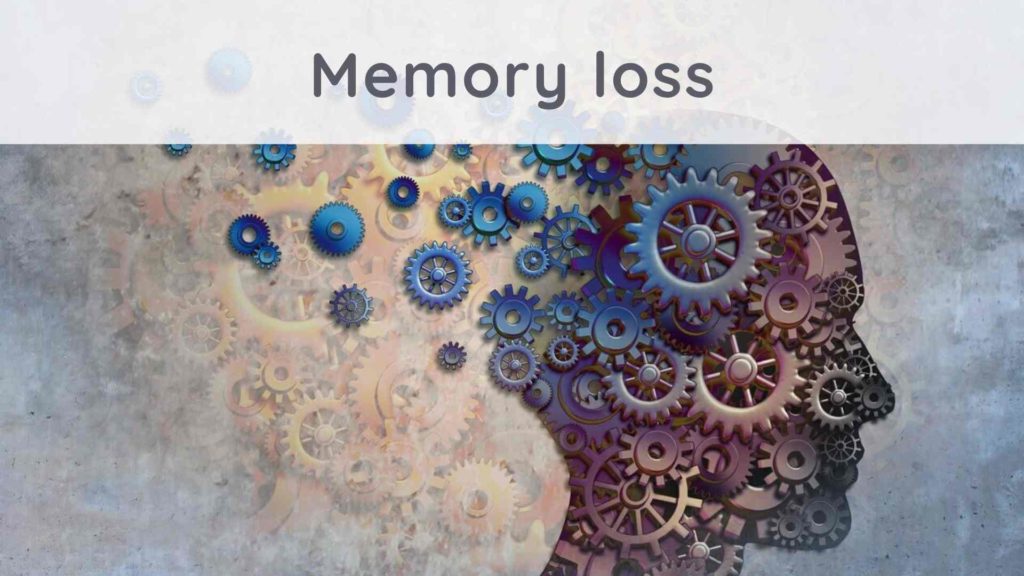Memory loss : how to strengthen the ability to memorize?
Written by: Loris Vitry (holistic coach)
Validated by: Cathy Maillot (Osteopath)
Caution: If you have any medical questions or concerns, please speak to your doctor. Even if the articles on this site are based on scientific studies, they do not replace professional medical advice, diagnosis or treatment.

Memory represents the brain’s ability to analyze and store information to retrieve it in the near or distant future.
However, there are situations in which the restitution of the information is neither exhaustive nor satisfactory.
In these cases, we talk about memory problems.
They can be due to several physiological and psychological factors, including stress, fatigue, emotional disorder, etc.
It can be an occasional or chronic issue, but there are various techniques at your disposal to help this condition or increase your ability to memorize.
This article will introduce you to some of these methods.
Meditation
It is a very effective method for building your memory.
Meditation has been scientifically proven to significantly improve the ability to memorize by reducing the periods of attention deficit.
Meditation stimulates the neurons that are responsible for the brain’s ability to create lasting memories.
However, for these functions to be fulfilled by meditation, it would have to be practiced assiduously and regularly.
In addition to helping your memory, you get rid of stress and learn to relax in the right way.
Visualization
The majority of people have a visual memory, that is, a mind that memorizes more with illustrations.
Visualization is a method of associating words with an image to remember it more easily.
To use this method, identify actions or significant places you experienced or visited by the past.
It will then suffice to create a link between this action or location of the past and the new thing that we are trying to remember.
The game
It is a physical or mental exercise that is not imposed on the individual and whose primary purpose is to be used for entertainment and pleasure.
Indeed, it is a (disguised) mechanism for learning new things without constraints.
According to science, it helps to stimulate memory very effectively in a natural way.
There are more memory stimulating games than others.
The most popular games used to increase memory capacity are sudoku, arrow words, crosswords, etc.
Exercice
Physical exercise increases the flow of blood inside the brain, and implicitly improves the functioning of the brain.
It is scientifically proven that a physical exercise of at least 20 minutes increases memory by 10%.
Indeed, regular sports practice stimulates brain performance while increasing the mental agility of the individual.
It is therefore strongly advised to do a minimum of 30 minutes of physical exercise per week to increase your memory.
Adapting food
Since memory is specific to neurons, giving the right food for neurons will facilitate their functioning.
The connection between neurons is ensured by myelin, which is a sheath made up mainly of fatty acid.
It is advisable to prioritize omega 3 fatty acids in your diet to consolidate the structure of neurons.
However, saturated fatty acids, which are responsible for the deposition of fat in the blood, should be avoided.
Omega 3 fatty acids are generally found in foods such as oily fish, wheat bran, flaxseed oil, nuts, rapeseed oil, etc.
Also, specific vitamins contained in food are catalysts of memorization.
These are the B vitamins, including B1, B6, B9, and B12.
These vitamins are essential in the secretion process of acetylcholine, a neurotransmitter substance.
They are found in foods such as salmon, organ meats, pistachios, eggs, liver, spinach, etc.
Iron also plays a vital role in boosting memory.
It allows oxygen to be transported to the brain to keep it going smoothly.
A deficiency in this mineral significantly harms intellectual performance.
It is found in foods such as green vegetables, red meats, quinoa, etc.
Restful sleep
It has been shown that the most frequent period of storage of new information occurs during sleep.
Indeed, sleep, when it is restful, helps to consolidate memory, which will be able to retain a more substantial amount of information.
Insufficient sleep will significantly slow the learning process due to poor mental focus.
A nap is restful but also beneficial for memorization.
Sleeping well allows you to memorize better.
Repetitive reading
When it comes to texts or writings that you want to memorize, repetitive reading is a great way to do this.
Indeed, it is necessary to choose a quiet place out of reach of noise and other distractions.
Then, you have to concentrate on reading with rest and repetitively what you want to memorize.
The repetition will initially stimulate visual memory, which will intervene to facilitate memorization.
After that, sentence by sentence or paragraph by paragraph, the text is appropriated by the brain, which can reproduce it without worries at the opportune moment.
The use of herbal medicine
Herbal medicine is the branch of medicine that deals with the treatment of pathologies and health disorders using the virtues of plants.
As such, it has multiple solutions to increase the ability to memorize and thus prevent memory loss.
Plants such as Ginko Biloba, sage, tea, Ginseng, and Eleutherococcus stimulate memory.
Some can simultaneously maintain concentration and neurons arousal during memorization moments.
The use of pharmaceutical drugs
Like herbal medicine, several remedies exist to correct memory loss and increase the ability to memorize.
These include dietary supplements rich in B vitamins and omega 3 fatty acids.
Vitamin C, which makes it possible to fight against fatigue, also helps memorization.
Memorization turns out to be the transmission of chemical or electrical information to the brain through neurons.
It also involves encoding, storing, and recalling information.
Several techniques, such as those presented above, can correct the dysfunction of memory loss and increase the ability to memorize.
Continue reading:
Digital addiction : how do screens damage the brain ?

